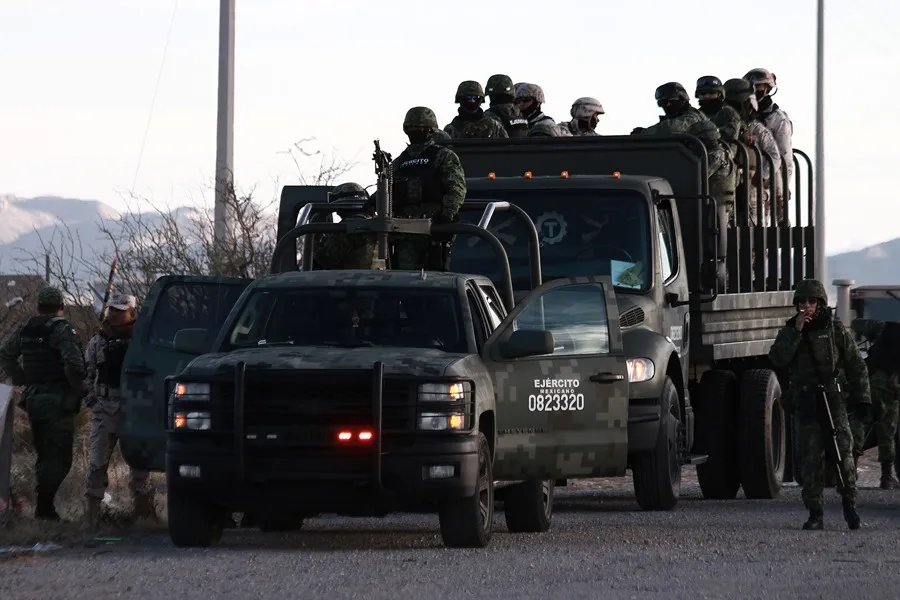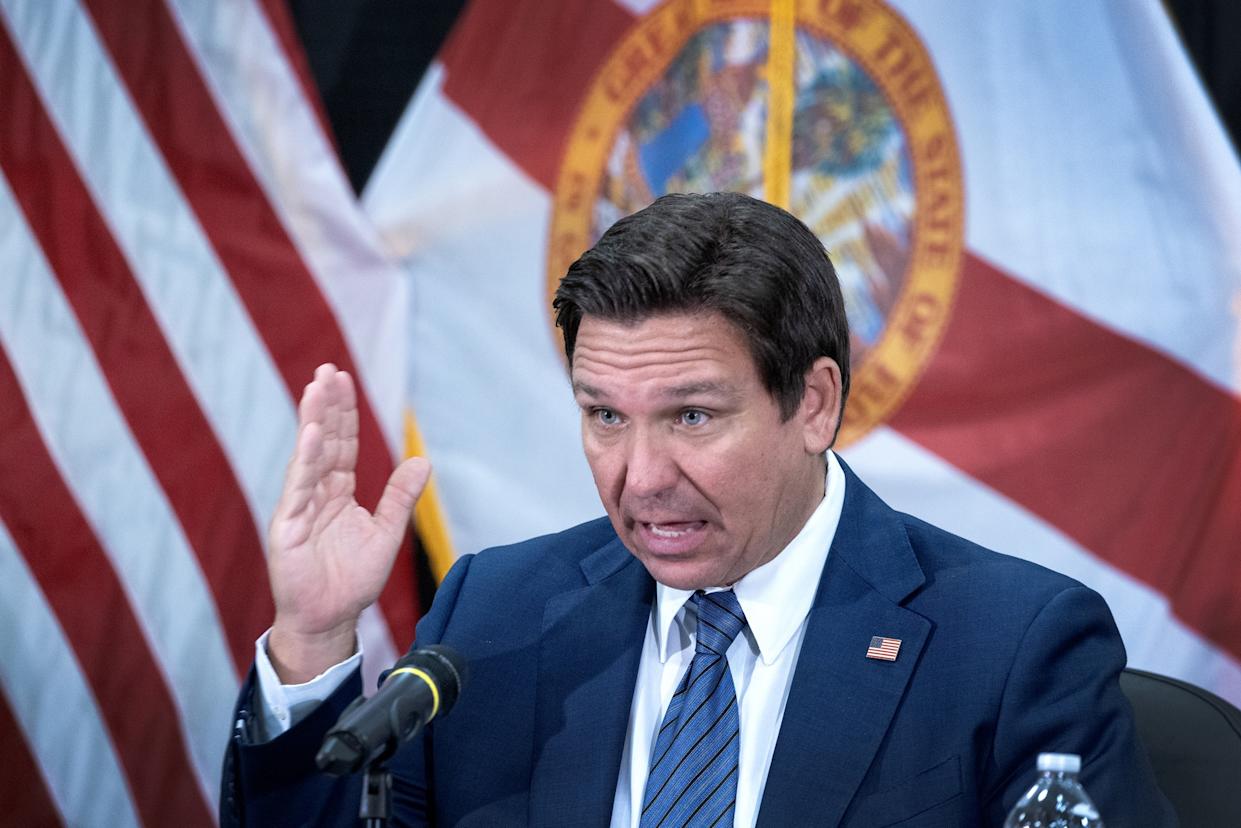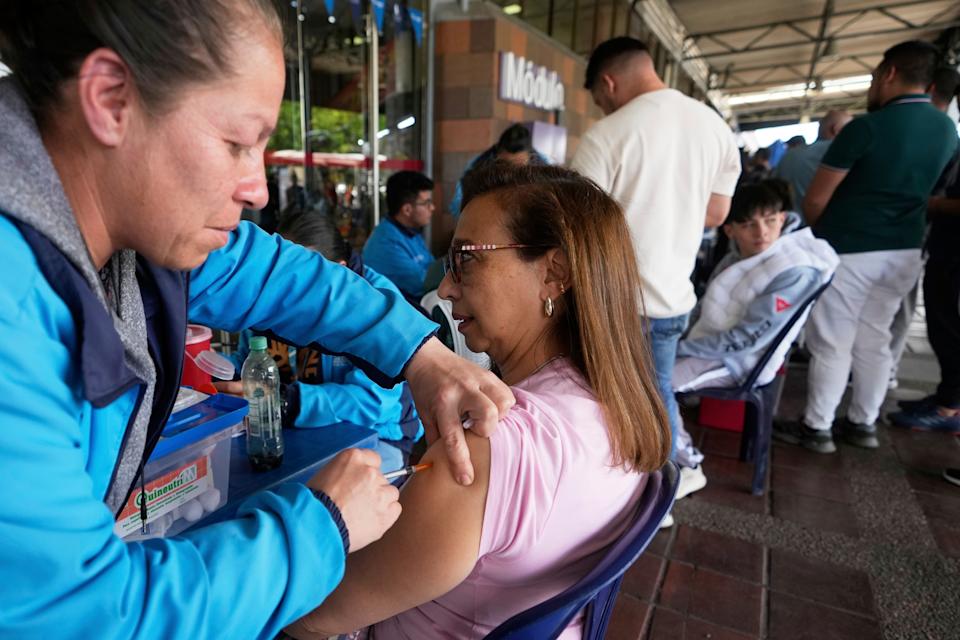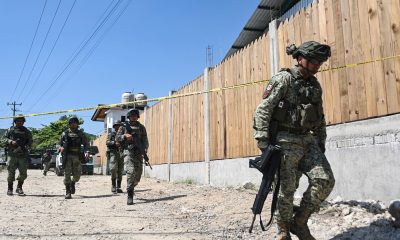International
HRW assures that Sheinbaum “inherited a crisis” from López Obrador due to “extreme violence” in Mexico

The international organization Human Rights Watch (HRW) said on Thursday that the president of Mexico, Claudia Sheinbaum, “inherited a crisis” from her predecessor, Andrés Manuel López Obrador (2018-2024), due to the “extreme violence” of criminal groups and “abuses” of the State.
HRW in its annual report on Mexico, the association maintained that Sheinbaum, “who took office in October, inherited a human rights crisis created by the extreme violence of organized crime groups and widespread abuses committed by state agents with almost total impunity.”
“His predecessor, López Obrador, made little progress to face these challenges,” he said.
In addition, he warned that Congress approved constitutional reforms in September, the last month of López Obrador’s presidency, which expand the role of the military in public security and “radically” transform the Judiciary, which could “perpetuate abuses and seriously undermine the rule of law.”
The New York-based group said that the homicide rate “fell slightly for the third consecutive year” in 2023, to 24.9 per 100,000 inhabitants, compared to 25.9 the previous year, but six cities had rates above 100 in 2022.
Two out of three murders are committed by organized crime and, in the same proportion, firearms are used, of which 70% “arrive in Mexico through smuggling from the United States”.
Despite the “slight” reduction in homicides, “the number of reports of disappearances has increased,” said the association, which reported a total of more than 115,000 people missing in September, based on official figures.
“Many could have been killed and buried in the almost 5,700 clandestine graves that activists and authorities have discovered. Around 53,000 human remains were stored, waiting to be identified by the end of 2022,” the report noted.
HRW criticized López Obrador’s constitutional reform in September to remove the ban on soldiers from performing non-military functions in peacetime, give the Ministry of Defense control of the National Guard and empower the Executive to “deploy indefinitely” the Armed Forces.
In the last month of the previous government there were 232,761 soldiers, sailors and national guards deployed in the country, according to the report, which cited the death of almost 5,700 people in Army operations from 2007 to July 2024.
“The military has obstructed investigations and criminal proceedings into human rights violations committed in the past,” HRW said.
The document also cited the UN Working Group on Arbitrary Detention, which in 2023 pointed out that “it remains a widespread practice in Mexico and is too often the catalyst for mistreatment, torture, enforced disappearance and arbitrary executions.”
About 37% of those in prison that year were not convicted of any crime and more than 20% of those in pre-trial detention had been in this situation for more than two years.
HRW also documented almost 830,000 arrests of migrants between January and July 2024, “the highest figure ever recorded,” while in the north of the country the Mexican authorities arrest about 10,000 a month, including some with an appointment in the United States, and send them to the south by bus.
Although there was a record of more than 140,000 asylum seekers in 2023, “the highest figure in history,” the Mexican Commission for Refugee Aid (Comar) resolved less than 26,000 requests.
On the other hand, the association reiterated that “Mexico is one of the most dangerous countries in the world for journalists and human rights defenders.”
Based on figures from the organization Article 19, there were 3,408 attacks or threats against journalists, 46 journalists killed and four missing from December 1, 2018 to March 31, 2024.
And in 2023, there were 14 murders of human rights defenders, according to the Cherry Committee, and 18 of environmental defenders, according to Global Witness.
International
Arsenal stun Real Madrid at the Bernabéu to reach Champions League semifinals

Arsenal enjoyed a “historic night” on Wednesday after defeating Real Madrid 2-1 at the Santiago Bernabéu, knocking them out of the Champions League quarterfinals, midfielder Declan Rice said.
“It’s such a special night for this club, a historic night for this club,” said Rice, who scored twice in the first leg in London, speaking to TNT Sports.
The English international was named Man of the Match in both legs — the 3-0 win in London and the second leg in Madrid.
“It’s amazing. I knew we were on an upward trajectory and we’ve done incredibly well in this competition. We deserve it and we have full confidence in our coach. Reaching the semifinals is unbelievable,” Rice added.
International
DeSantis’ immigration crackdown sparks alarm in Venezuelan Communities in Doral

Florida, the U.S. state with the third-largest immigrant population, has become the most aggressive in targeting undocumented immigrants, largely due to pressure from Governor Ron DeSantis. This shift has led Latino-majority cities like Orlando and Doral to authorize their police forces to assist in immigration enforcement.
In Doral — part of the greater Miami area where 70.7% of residents are immigrants and 48% are of Venezuelan origin — the City Council is expected to approve a measure this Wednesday allowing local police to collaborate with Immigration and Customs Enforcement (ICE), despite opposition from neighborhood groups and human rights activists.
“It’s yet another betrayal,” said Susana Ríos, a 57-year-old Venezuelan woman currently under Temporary Protected Status (TPS), whose extension was denied by the White House and is now being challenged in court.
Meanwhile, José González, a 21-year-old immigrant, said he feels “abandoned.” He can’t stop thinking about the images of Venezuelans deported to El Salvador without due process. “We’re all in danger,” he warned.
International
Bogotá residents line up for yellow fever vaccine amid national alert

David Suárez went to a public health center in Bogotá on Wednesday to get vaccinated against yellow fever. It wasn’t originally in his plans, but he responded to a call made just hours earlier by President Gustavo Petro, who announced he will declare a health and economic emergency due to a new outbreak of the disease that has already left more than 30 people dead, mostly in the central-western region of the country.
“I got vaccinated for two reasons: first, for my own health because I’m traveling, and second, for a social reason — simply to follow the president’s guidance and be aware that this is a problem for all of us,” said Suárez, a 39-year-old teacher, to The Associated Press.
Like Suárez, dozens of people were waiting in line for the vaccine at Bogotá’s main intercity bus terminal, a key transportation hub especially crowded during travel seasons like Holy Week.
The teacher is traveling with his family to the department of Huila, which has activated a contingency plan due to its proximity to Tolima — the epicenter of the yellow fever outbreak — where a state of public calamity has been declared.
-

 International4 days ago
International4 days agoNightclub Collapse in Dominican Republic Claims 226 Lives
-

 Central America4 days ago
Central America4 days agoSpanish Ex-Congresswoman Calls for ‘Bukele-Style’ Security Policies in Europe
-

 International4 days ago
International4 days agoVenezuela accuses Guyana of “warlike intentions” after UK defense deal
-

 International4 days ago
International4 days agoTrump Authorizes Military to Take Control of Federal Land Along U.S.-Mexico Border
-

 Central America2 days ago
Central America2 days agoHonduran Police Offer $135K for Tips Leading to the Arrest of Romeo Vásquez
-

 Central America1 day ago
Central America1 day agoPetro questions Ecuador’s vote, cites reports of military control and arrests
-

 International2 days ago
International2 days agoMPV Denounces Electoral Blockade as Secretary-General is Disqualified for May Elections
-

 International2 days ago
International2 days agoMaduro Plans Major Workers’ March on May 1st to Defend Venezuela’s Freedom
-

 International1 day ago
International1 day agoColombia: Search continues for missing limb of italian scientist found dismembered
-

 International3 hours ago
International3 hours agoArsenal stun Real Madrid at the Bernabéu to reach Champions League semifinals
-

 International3 hours ago
International3 hours agoBogotá residents line up for yellow fever vaccine amid national alert
-

 International3 hours ago
International3 hours agoMexico refuses to restore ties with Ecuador while Noboa remains in office
-

 International3 hours ago
International3 hours agoDeSantis’ immigration crackdown sparks alarm in Venezuelan Communities in Doral















